PACKING THE HOUSE: Pilot Mound’s small town spirit shines
Advertisement
Read this article for free:
or
Already have an account? Log in here »
We need your support!
Local journalism needs your support!
As we navigate through unprecedented times, our journalists are working harder than ever to bring you the latest local updates to keep you safe and informed.
Now, more than ever, we need your support.
Starting at $15.99 plus taxes every four weeks you can access your Brandon Sun online and full access to all content as it appears on our website.
Subscribe Nowor call circulation directly at (204) 727-0527.
Your pledge helps to ensure we provide the news that matters most to your community!
To continue reading, please subscribe:
Add Brandon Sun access to your Free Press subscription for only an additional
$1 for the first 4 weeks*
*Your next subscription payment will increase by $1.00 and you will be charged $20.00 plus GST for four weeks. After four weeks, your payment will increase to $24.00 plus GST every four weeks.
Read unlimited articles for free today:
or
Already have an account? Log in here »
Hey there, time traveller!
This article was published 25/01/2025 (316 days ago), so information in it may no longer be current.
PILOT MOUND – For the smallest town to host a major Manitoba provincial curling championship in history, getting enough help was never an issue.
The 2025 RME Women of the Rings event is largely being run volunteers, everything from ice crew assistants and timers and officials, as well as hospitality and everything in between.
Fitting, seeing as the facility was essentially built by volunteers.
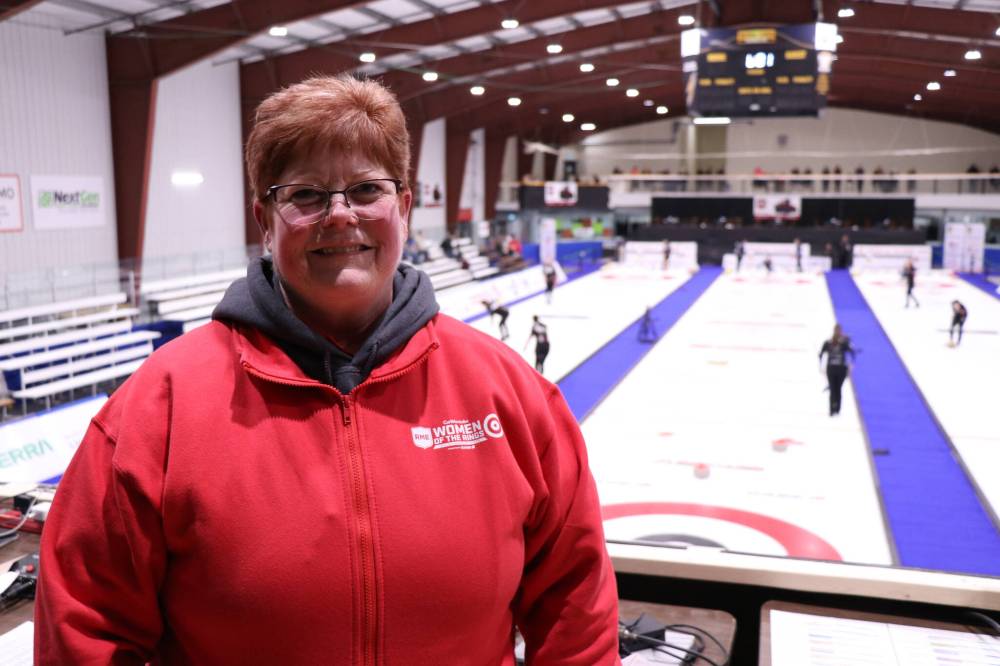
The venue that is hosting the provincial curling championship and is home to the Pilot Mound Hockey Academy, the town’s museum, movie theatre, and of course, curling rink, rose from the ashes of its crumbling predecessor.
Facing aging facilities that were in dire need of replacement, the complex has a unique origin that spanned the distance of Manitoba.
The Pilot Mound Millennium Recreation Complex opened in 2010 after volunteers from the community literally disassembled and moved the building nearly 1,200 kilometres from Sundance, a now former townsite in northern Manitoba that was vacated upon completion of the Limestone dam.
The community purchased the facility from Manitoba Hydro for $25,000 as the lone bid in an auction.
Then came another hard part.
Volunteers laid more than 30,000 bricks before putting the facility back together, running electrical wire, installing pipes and ventilation, and painting to make their new, yet hand-me-down rink their own.
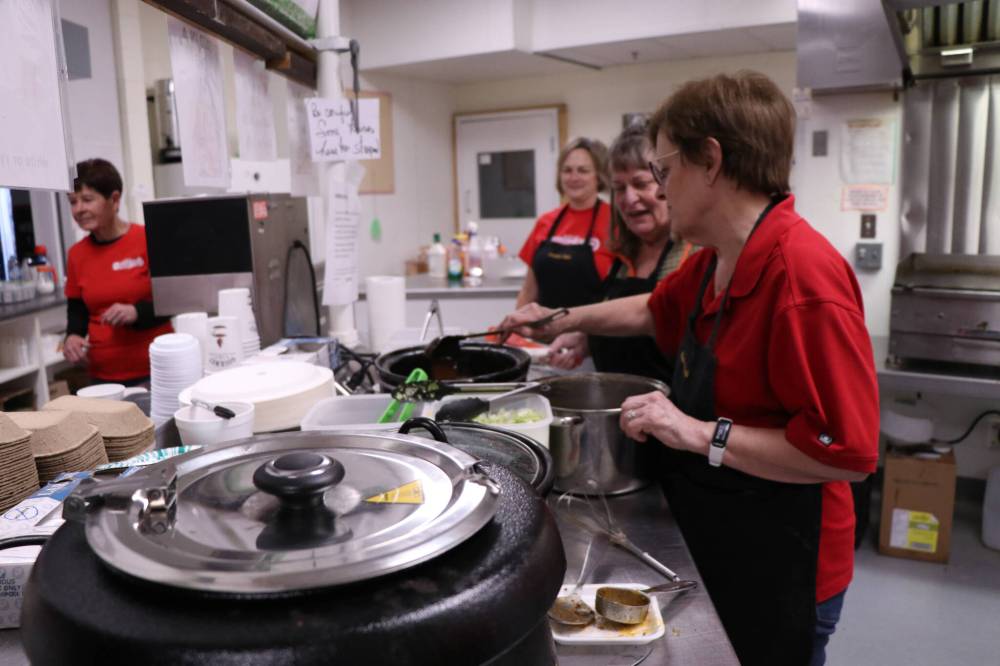
That of course came after it was stored in pieces in machine sheds owned by nearby farmers.
“This building was built by volunteers, except for like two construction people that worked with our people on some of the cinder block walls,” said event co-chair Jackie McCannell.
“From one end of this building to the other, it was volunteers, so I knew that wasn’t going to be an issue.”
Just like then, it seems almost the entire town of 675 is volunteering to make the event run smoothly.
But as McCannell pointed out, there are exactly 143 volunteers supporting the event.
“I knew it was going to happen. Everybody in this community gets behind events like this,” said McCannell.
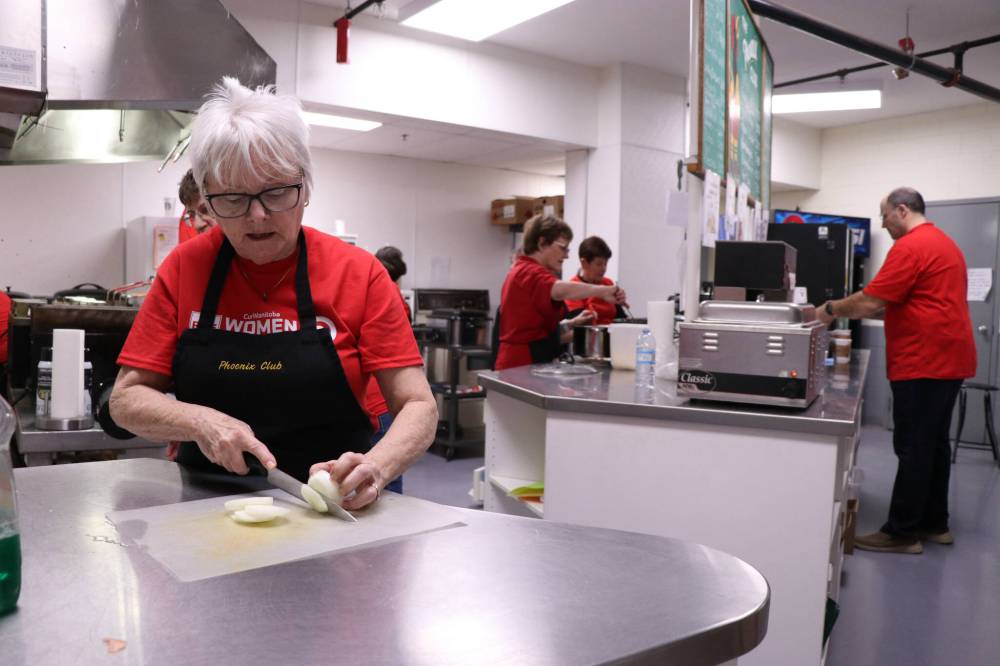
“I was asked in March at a different event ‘What on earth are you going to do for volunteers?’ and I said that was the least of my worries. I knew we would not have a problem. By April we had 100 volunteers sign up already and we had not even advertised.”
As soon as you walk in the front door sisters Robin Robinson and Janet Boyd greet you.
“I’ve only had to kick out two because they only wanted to drink beer,” Boyd joked while Robinson knitted during downtime at the front desk.
Third sister Cindy Hunter was volunteering elsewhere in the facility, as all three grew up in the area.
Boyd still lives nearby while the other two moved away, but all three share the same small-town sentiment of giving back.
“I’m going straight from here (the front desk) to another shift in the kitchen,” Boyd said, putting in another eight-hour day between the two roles she filled on Friday.

She’s like many that are volunteering on multiple committees to see the event be a success.
In the canteen, up to 15 volunteers feverishly prepare food at any one time.
Led by kitchen manager Shelley Sutherland, the crew serves up canteen classics like burgers, fries and onion rings but also nightly supper specials like stew in a bread bowl and lasagna.
For $15 you get a home-cooked meal, lovingly prepared by the volunteers that welcome you to the facility as if it was their own kitchen.
The canteen is run by the town’s Phoenix Club, which started in the 1950s after the town’s original arena burned down in what is the parking lot of the current rink.
Sutherland said the Phoenix Club rose from the ashes of the old barn, and has led to community volunteerism ever since.
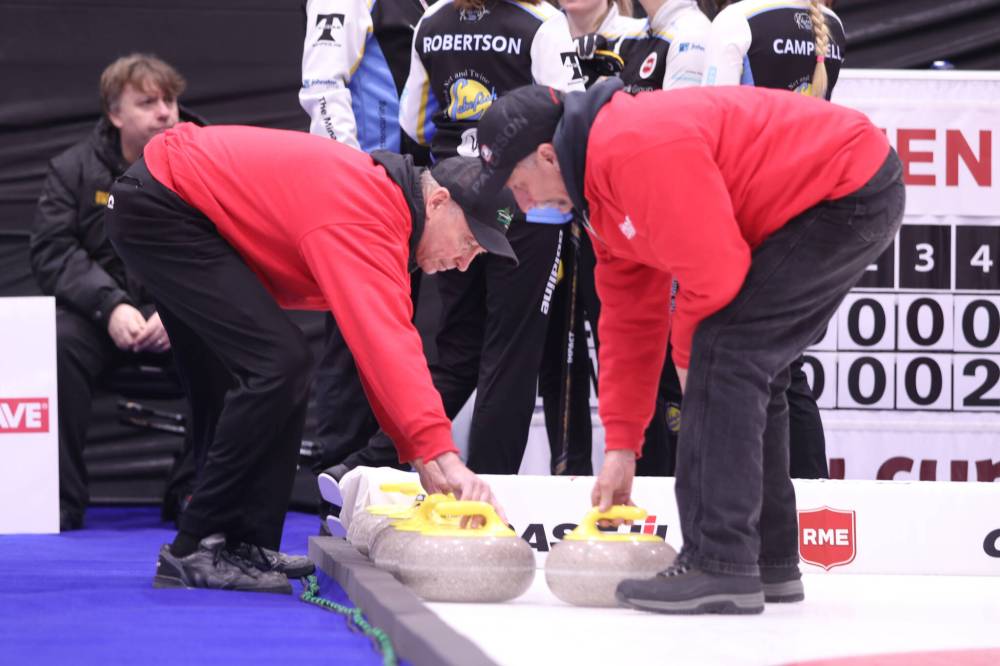
“I think for a lot of arenas like ours, the canteen is a key part,” said Sutherland.
“We just want to see the rink thrive, do well, and keep going. We all enjoy it, and we all have fun with it.
“Everybody is really proud of this facility,” Sutherland added.
Sutherland’s full-time job as a business analyst doesn’t interfere with the volunteer role of canteen manager, even though the demands with the side gig almost equate to another full-time job.
The benefit is to the entire curling community, as participants noted the small-town hospitality.
“Pilot Mound has done a fantastic job. You can look out there and the atmosphere is great,” said Darcy Robertson, the most experienced skip in the 12-team field.
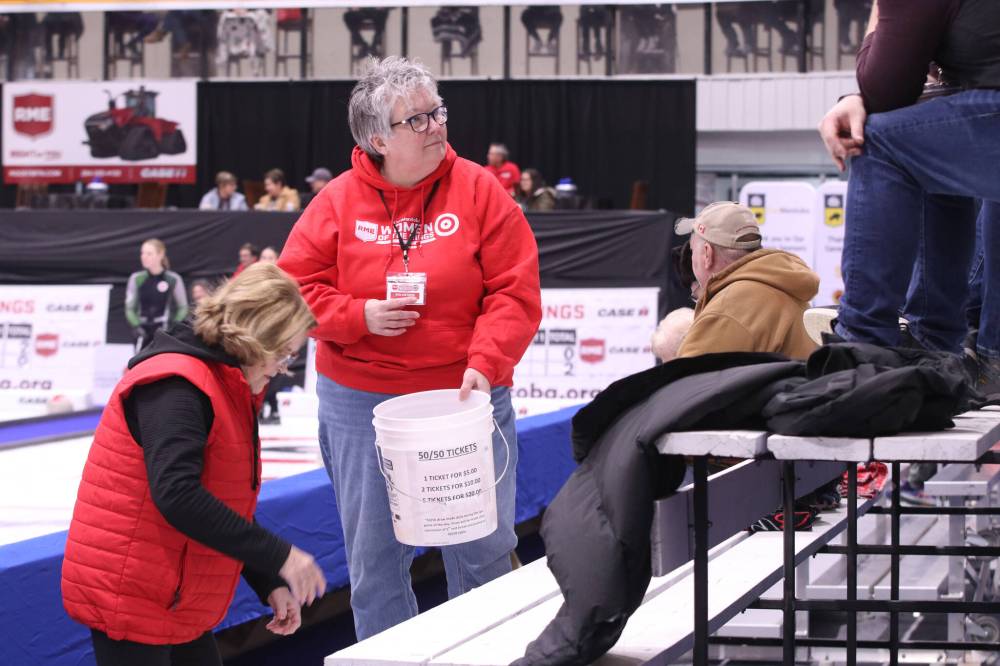
Robertson has been to enough provincial championships to have lost count, answering how many times she’s competed with “I have no idea. In the thirties I think.”
But the appreciation for an amazing host community never gets old.
“The people are great. They’ve really worked hard,” Robertson said. “With a community of this size it’s really impressive that they’ve been able to pull this off. They’ve done an amazing job. Everything has been fantastic.”
Reducing the field from 16 teams to 12 allowed the opportunity for this small town and others to even have the opportunity to host, as just three sheets of ice created the current format.
“It wasn’t really a planned outcome … but allowing us to go to three sheets opened it up to communities that wouldn’t have had a chance to host previously,” said Curl Manitoba executive director Craig Baker.
“We’ve heard great feedback on having six teams advance to the championship round. It has a really nice feel to it and that’s what the curlers want to see. It opened up the smaller venues because you don’t need such seating capacity because they can bring in the temporary seats.”
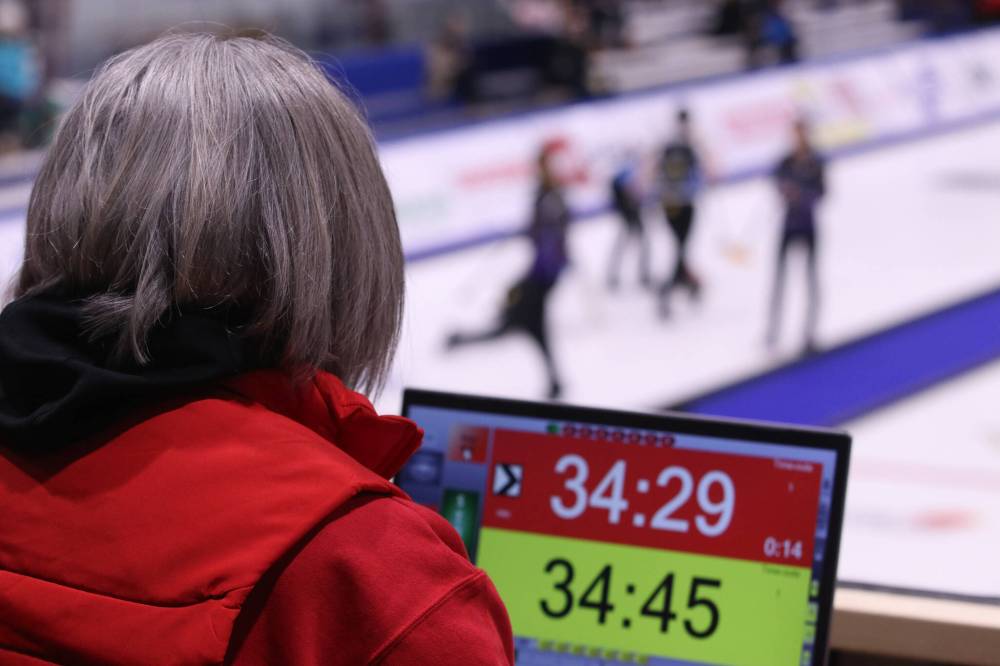
The volunteer base of an event like this is almost just an added bonus.
“Considering the population … their volunteer allotment is around 140, so you don’t have to be a math genius to figure out that you have a good chunk of the community here helping out and getting behind it,” Baker said.
“It’s not even about the small community, it’s when curling comes into rural Manitoba you see the volunteers and you see the commitment that these make to make it a phenomenal event.”
For McCannell, who competed in past Scotties herself and still serves Curl Manitoba as an umpire at provincial events, the opportunity to showcase their small-town hospitality and facility makes all the work worthwhile.
Although admittedly she hopes to find a few minutes to watch some of the province’s best female curlers.
“You plan and prepare and it finally gets here and it’s almost over in a flash. I was anxious to get Wednesday evening over, and all of the festivities with the opening ceremonies and day one action in the books. Once that happens there’s a bit of a sigh of relief,” McCannell said.
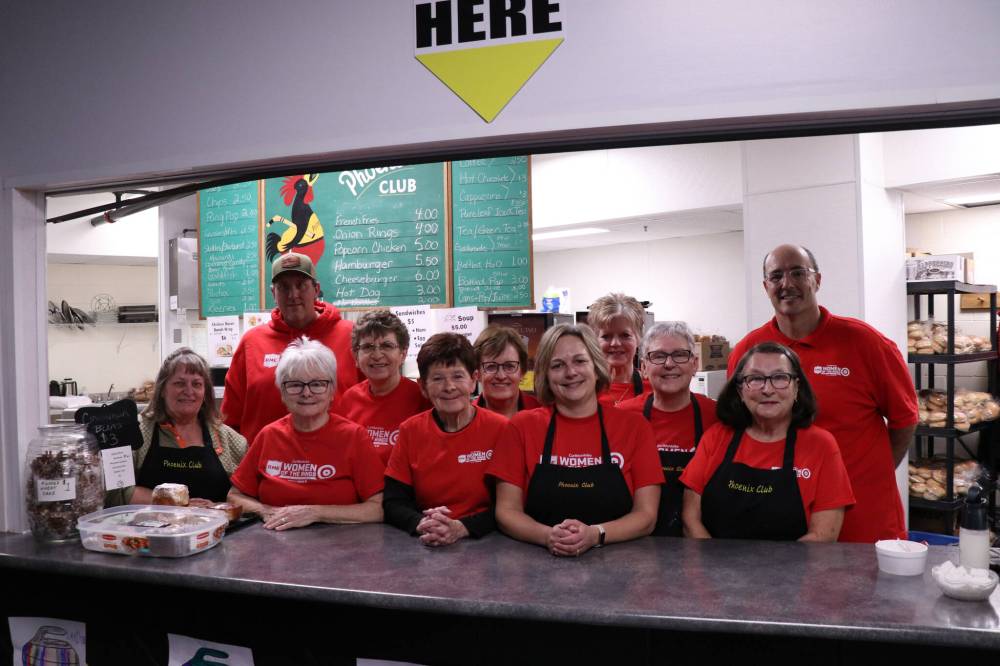
“Everybody around this area has volunteered for years and that’s what small communities like ours are made of.”
» mpackwood@brandonsun.com
